Adaptive Skills
Adaptive skills, at first glance, are a defense against sudden change. The feeling of disruption that dominated the pandemic years has continued with trends related to AI, inflation, and other business issues. To handle these challenges, companies must ensure that employees have better and/or new skills–and the right ones. Plus, adaptive skills can also be a competitive advantage–all the more reason to nurture them even when there are no calamities on the horizon.
What Are Adaptive Skills?
Adaptive workplace skills are soft skills that can be classified as either reactive or proactive.
Reactive adaptive skills help employees handle unexpected developments. Although such skills are always beneficial, they become critical whenever an organization must adjust hurriedly to new situations. These skills include:
Problem-Solving
Dealing with unforeseen circumstances is part of every venture. Those who develop problem-solving skills will have the tools to readily adapt. One important asset that both individuals and companies can use for problem-solving situations is a growth mindset, which teaches people to see problems as learning opportunities. In addition, problem-solving can unfold both individually and collectively. Individual problem-solving skills include creative thinking and analytical ability. Collaborative problem-solving skills include brainstorming and teamwork.
Decision Making
Once the root cause of an issue is identified, the next step is to deal with it, and this is a result of deciding between potential solutions. Some of the skill elements associated with decision-making include critical thinking, delegation, and assertiveness.
Change Management
Once the problem has been identified and a solution outlined, the next phase is to organize and initiate the reaction. Change management is a skill that can manifest on three levels – developmental (new processes and procedures); transitional (moving from one organizational structure to another, such as becoming a corporation); and transformational (a fundamental shift, such as selling an entirely different product).
Change management requires a comprehensive set of skills depending on the nature of the change. Perhaps the most important skill element in this case is communication, which is necessary to coordinate change efforts across the organization.
Stress Management
Any unexpected situation induces stress. When serious changes occur, stress can overwhelm leaders and become infectious. Although stress management does not produce anything tangible, as opposed to a strategy resulting from decision-making, it is still essential. A proper reaction to stress will maintain productivity when it is most needed. Skill elements connected to stress management include goal setting, emotional intelligence, and resilience.
Proactive adaptive skills help employees in new situations to quickly acclimatize. In addition, for individuals interested in managerial positions, the ability to rapidly adapt is paramount. Proactive adaptive skills include:
Initiative
For employees working in a hierarchy, initiative allows an individual to use their expertise and personal traits to encourage productivity. Even in a company with a flat organizational structure, initiative can still be exhibited by working independently. Among the skill elements associated with initiative are confidence, the ability to incorporate feedback, mindfulness, and listening.
Organization
Understanding best practices and taking the time to get organized is not something everybody does. This is one of the reasons, for instance, that the average employee spends almost forty hours a year trying to find information and various items. Adopting organizational skills is a move that individuals can make to improve their own performance, and is an imperative for leaders.
But more importantly, during times of change, creating an organized plan is an important first step for resolving a crisis. Organizational skills include scheduling, time management, and record keeping.
Why Are Adaptive Skills Important?
Changes create threats and opportunities. Businesses that are first to grasp that change is upon them, and adapt accordingly, will:
- Minimize wasting resources on obsolete operations
- Avoid shocks caused by market shifts
- Develop ‘first in the market’ advantages
- Be a step ahead of competitors and potentially maintain that position
Change is simply unavoidable. According to Forbes, half of all skills that were held by employees in 2023 will not be relevant in 2025. For the foreseeable future, HR teams and the employees they support will be constantly upgrading their skills through L&D programs to deal with this situation.
In light of this, according to McKinsey, adaptive skills can be considered “meta-skills”. Meta-skills can be thought of as an overarching set of abilities that are necessary for many employees to have and which contain “skill elements” that are more specific. The skills listed above, such as decision-making and problem-solving, are types of elements for adaptive skills. In comparison, classic examples of meta-skills are leadership skills and communication skills. For instance, leadership includes self-awareness and critical thinking, while communication includes verbal and written.
However, this idea can be taken a step further. To build a comprehensive set of skills for adaptability, employees should alter their behavior as a whole, with attention paid to three areas:
Well-being
Dealing with problems such as burnout includes steps to improve well-being, which involves taking care of one’s physical and mental health. It is recommended to partake in daily practices to prevent emotional upsets. Well-being steps include getting enough sleep, exercising, meditation, and taking time for personal interests.
Limits
Working without an end goal is not recommended. Professionals need career paths to guide them in the right direction. But beyond that, employees should compose a set of personal standards according to the lifestyle that they prefer. Along with career goals, workers should deeply consider work/life balance and ensure that they adhere to their decisions.
The Growth Mindset
A central aspect of the Growth Mindset is seeing challenges as opportunities for growth. What better setting for this than a situation that requires constant change? Building a Growth Mindset on an organizational level is in itself an adaptive measure that demands changes to company culture.
How Are Hard Skills Relevant?
Hard skills are essentially different from soft skills in that they tend to be objectively evaluated and measurable. But it makes sense to think of them as being part of adaptive skills. For instance, if an R&D department is under pressure to adapt to a new competitor, better and faster programming abilities are critical.
But, in the larger picture, it would seem that improved programming skills are the result of adaptation. An employee does not simply get better at something. Instead, they are often taught a soft skill that enables them to enhance performance. Going back to the previous examples, improved programming skills might be the result of better stress management, problem-solving, and organization.
The Adaptive Approach of Growthspace
Implementing adaptive skill training is important, but so are many other tasks that employees perform. It can be a challenge to give workers significant learning opportunities without interfering with their productivity. In a way, L&D departments need to think adaptively if they are to find a solution that makes L&D programs both effective and convenient.
Unless they rely on Growthspace. With a technology-based approach to soft skills training, Growthspace’s talent management solution empowers organizations to match acclaimed experts with employees for rapid L&D sprints. In minimum time, employees receive maximum benefits from some of the world’s best trainers, coaches, and mentors for adaptive skills.















